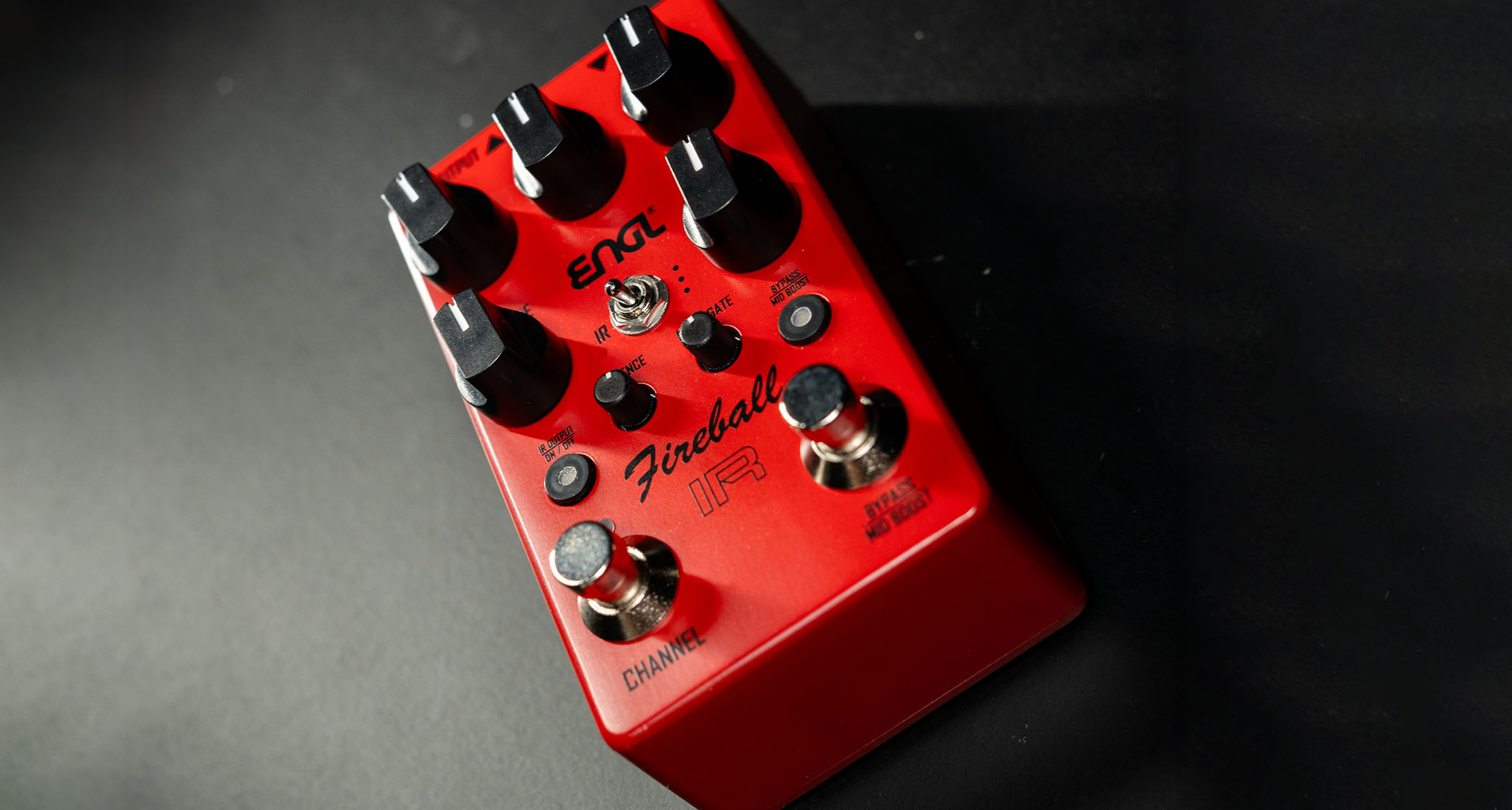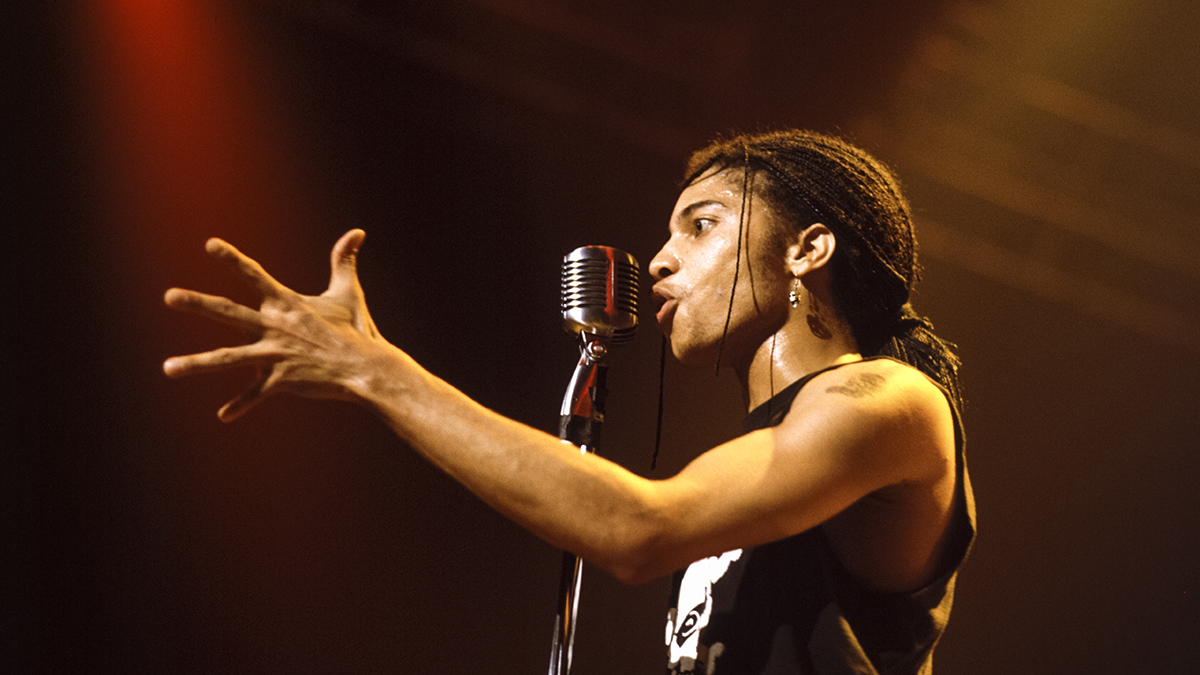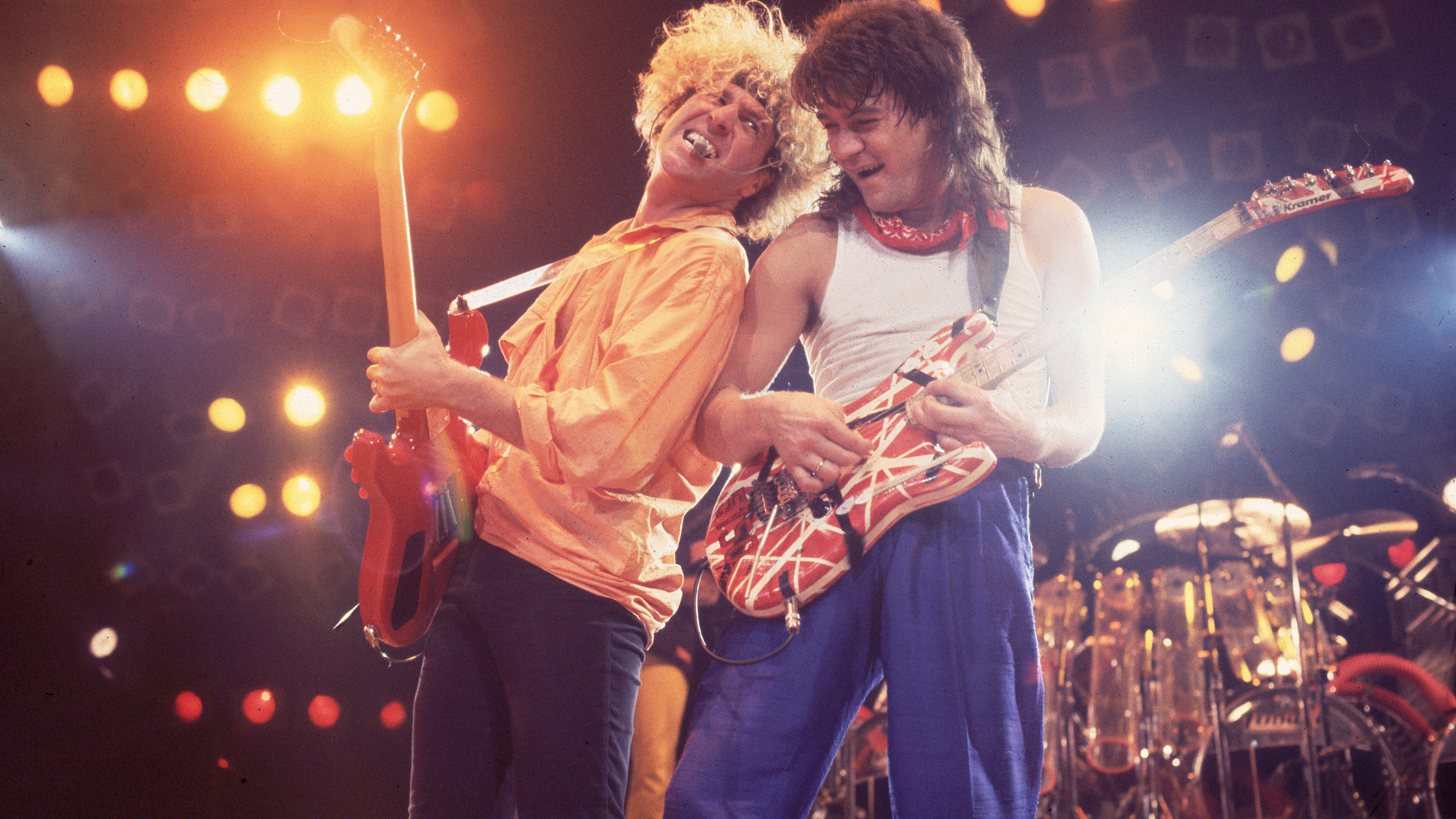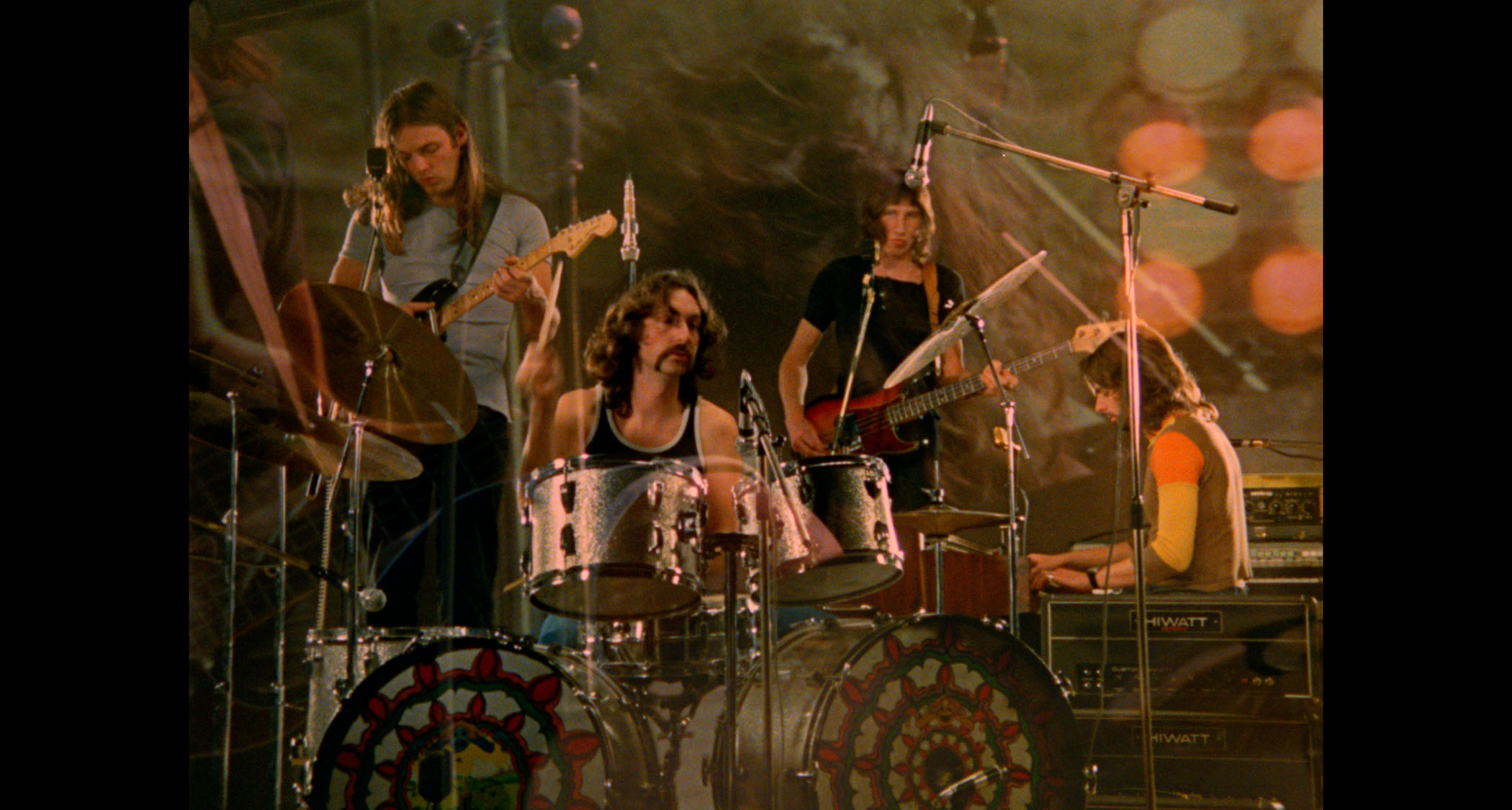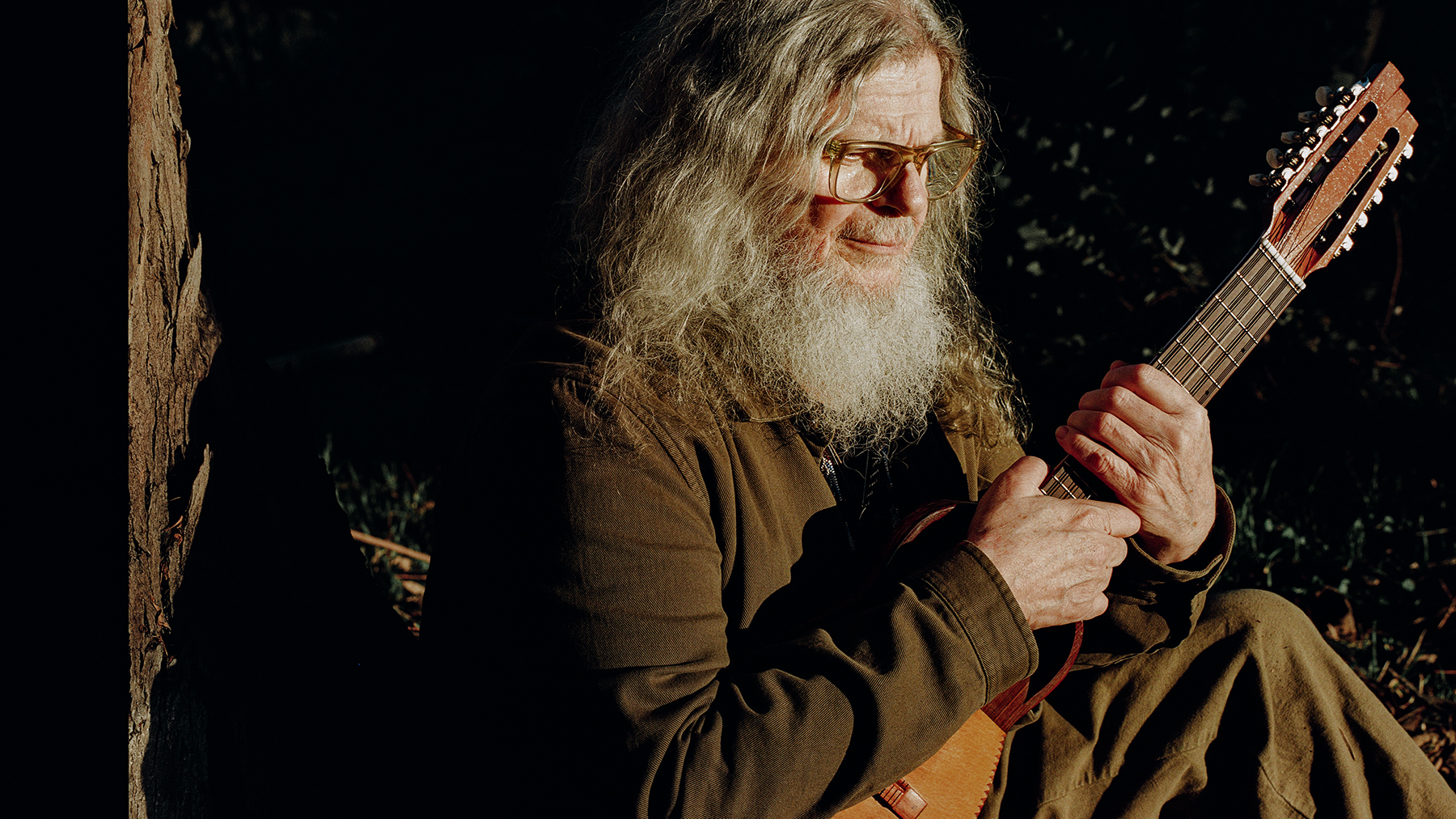
Mike Mangini answers your questions!
As any touring musician knows, the road can be grueling. There's travel by air and bus, hotels, meals on the go, soundchecks, interviews – so much for that notion of partying every day. And if you're Dream Theater's drumming master Mike Mangini, there's also that not-so-small matter of playing three hours a night of some of the most technically advanced prog-metal music ever written.
During a brief moment of downtime on the mighty DT's An Evening With Dream Theater world tour, Mangini sat down to answer a batch of questions from MusicRadar readers. (For all Dream Theater tour dates, click here.)
Do you ever get in a rut with your drumming, and if so, how do you break out of it? – Mike Zantis
“My chops don’t really veer too far one way or the other. When I’m off of my A-game, however, I practice extremely slowly or go golfing.”
What was the last breakthrough you had with your playing? – Dan E. Stoller
“It was adjusting my velocities and realizing that I don’t have to smash everything, with the perception that hitting harder gets you a better sound. Hitting hard enough gets the best sound, yes. Over-smashing is hard not to do, especially when you’re an excitable person, so I’ve learned to control the velocities – to make them strong but not go below a certain point.
“That’s a ton of work, though, because it forces you to redo your own protocalls, your operating system. It’s a big, big behavior change.”
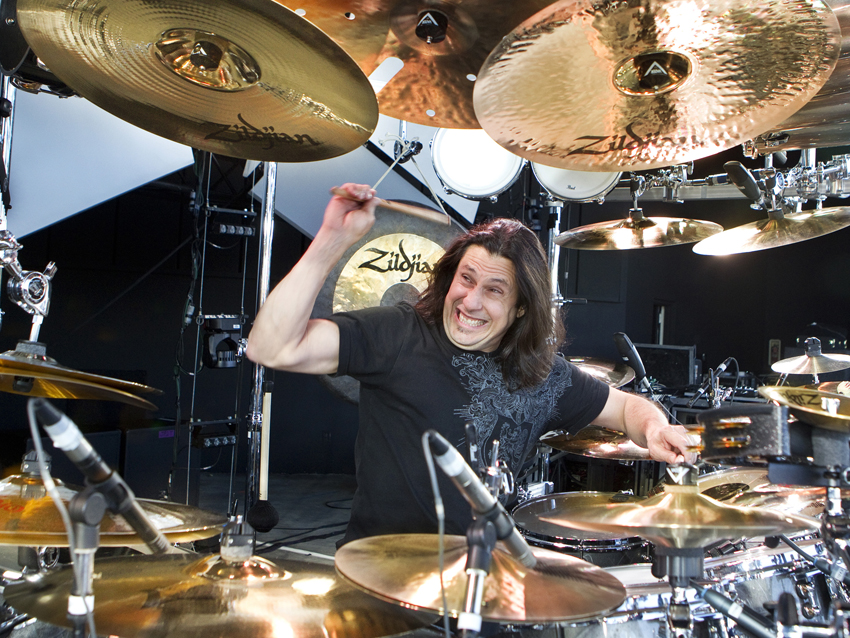
Mike Mangini answers your questions!
What percentage of your drum kit do you play in a gig? – Profesor Carlos Zaragoza
“I play the whole thing for most songs. If you ask that question, it either means that I’m not being understood or my drumming isn’t coming across the way it needs to.
“The way that I play, all the tom-toms make one sound. There could be three of them, or there could be 43 of them – it’s just one sound. And since I play music, music has high notes and low notes. I match the higher drums to match the higher registers on the other guys’ instruments and the lower drums to match the lower notes on their instruments. Essentially, a song goes from highs to lows, and so I’m going to play highs and lows, too.”
When you watch other drummers play, what’s the one thing that you see them doing wrong? – Bobby Donner
“This is a tough one because I look for the positives in everybody. And, of course, I was a teacher for forever – I’ll probably always be one. If I were being asked to evaluate someone, I would just look at that person on a purely technical level. So the question would be, ‘Are they reaching their potential?’ It could be that a drummer’s technique limits them in pulling off things that they don’t yet do. Bt maybe it’s just not in their spirit to do it; it’s not in their calling – I can’t call that wrong.
“The only thing that would be wrong for anybody would be to use a technique that would hurt them. And this includes me – I’m not pointing a finger at anybody else. If I see myself, or anybody, grabbing the sticks too tightly and hitting the drum in a way that I know is unhealthy for the tendons, I would say that’s a wrong thing to do.”
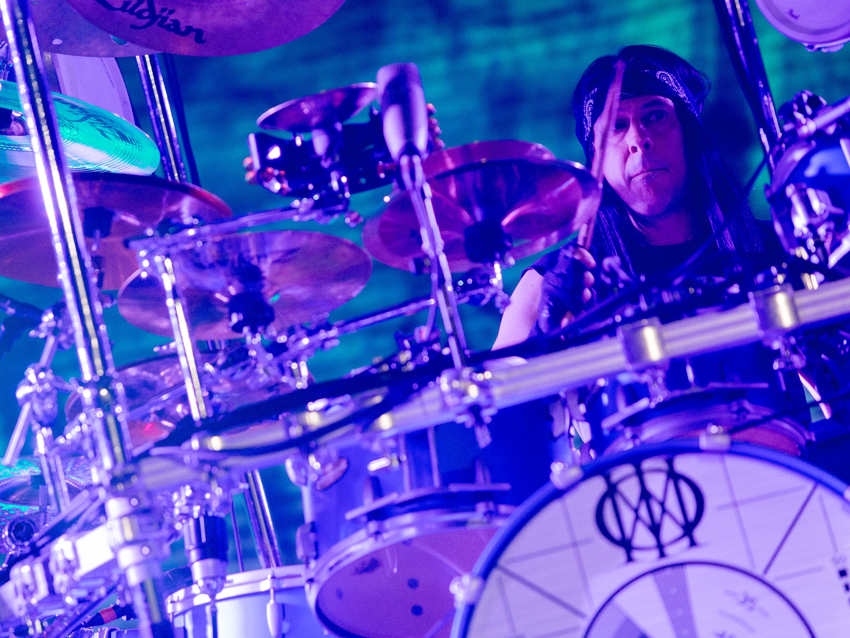
Mike Mangini answers your questions!
What is your opinion of Ringo? – Elizabeth T.
“Ringo was the first influence on me, so I don’t think that I could have a better opinion. He’s got a confidence that is so amazing. You really have to appreciate how he played rock ‘n’ roll on stage with a smile on his face in situations where he only had a microphone or two. He knows who he is and he’s confident – that’s my evaluation of him. He’s solid, a solid influence.”
Of the older Dream Theater songs that you’ve played live, which one gave you the biggest fight to master? – Big Norm
“The ones from the first album, and the reason why is because of the tempos. They’re all over the place, up and down – there’s changes everywhere. They’re uniquely recorded, played a certain way at that time. For me to match that means that I have to match that same feeling, and it takes a long time to know the little fluctuations to reflect how it is.
“Yet, I don’t really have to reflect how it is. The way I am with Dream Theater now is the way I play those songs. That’s exactly what my plan is.”
Of the songs on the new album, which one was the most challenging for you? – Randall Walker
“The Looking Glass took the longest for me to get, and it’s because I improvised the most on it. But you know, that goes back to the older tracks. Whenever there wasn’t a lot of time for those guys to mull over their parts and they just kind of had to play stuff, all of that comes out of an improvisational base. Those things are hard to replicate for anybody.
“The Looking Glass was the most improvised track on the new album. I had to catch a train home, so I really whipped it out – I just played it and left! [Laughs] Later on, I had to go back and hear what I did. There’s so much cymbal work on it, with layers and layers of sticking, and it’s hard for me to hear in that frequency range. And I was improvising.”
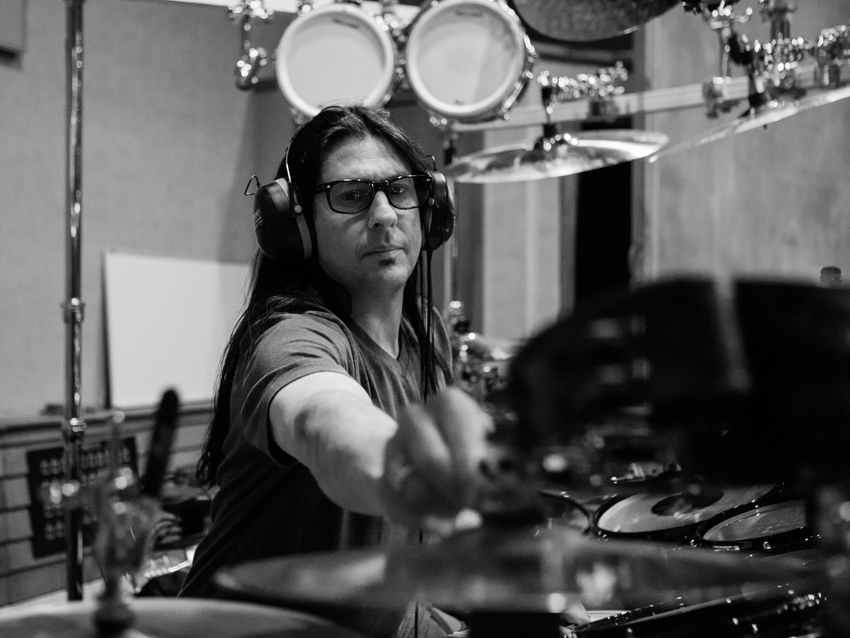
Mike Mangini answers your questions!
What is your biggest quirk as a drummer? – Drum Soul
“Finding that I can’t carry some things from the practice song to the stage when I overthink them. For example, there might be something I’m playing something with ease. I might have worked on it for a week, and then I achieve it and can do it with my eyes closed, but I sometimes can’t make that transition from the practice song to the stage because I’m hitting so differently. That happens when I’m playing with the band – I have to pound out hits. Being on stage just isn’t the same as being in a practice room, which is a much more relaxed situation.”
Pick any famous drummer living or dead. Who would you most like to take a drum lesson with? Leo Matson
“There are so many! [Laughs] Trying to pick just one is hard because each one does what no other drummer does. I’m hesitating because I’m trying to figure out what I would want the most. Maybe that answer is unique: There isn’t just one person.
“This speaks to the way I see drums and drumming and human beings. It’s like, everybody does something special. For example, if I could take a lesson with Buddy Rich, I would ask him what he feels and visualizes before he goes to the stage to carry the kind of confidence that he does.
“If it were John Bonham, I would ask him what he thinks about mentally to control his velocities the way that he does in the studio. I’d like to know how he deals with those voices in his head, which might make a guy like me not think and overhit, or just explode with something.
“That’s really what I’d like to know: What’s going on in these drummers’ minds? What are they thinking about and visualizing to try to achieve what they do?”
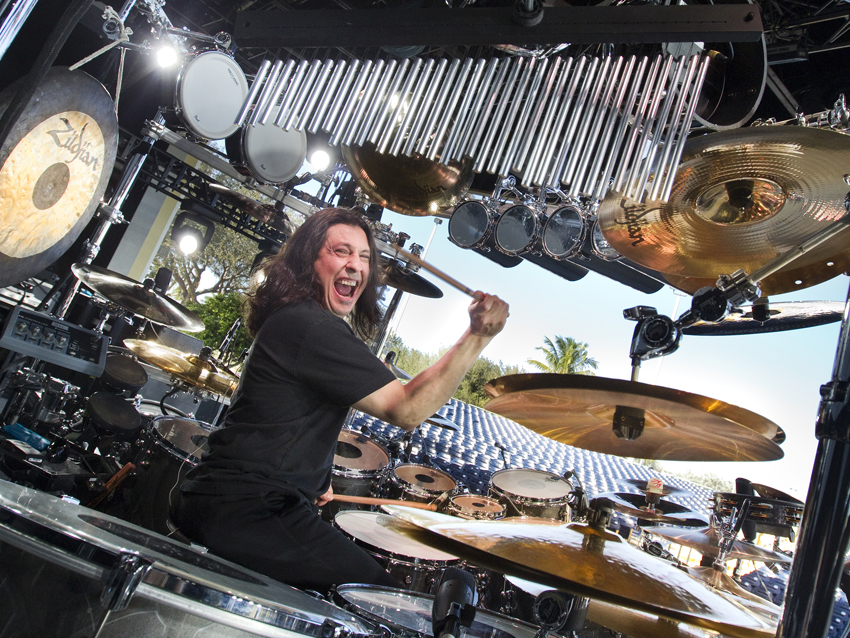
Mike Mangini answers your questions!
Not counting you, who’s the best drummer in Dream Theater? – Paul Taylor
“Now, that might not be fair. Are we talking about playing the instrument or coming up with stuff? Honestly, I don’t really know! [Laughs] The only one who’s jumped behind the kit is [John] Petrucci. On the other hand, [James] LaBrie’s sense of rhythm is sickeningly advanced.
“I think John Myung has drums at home, so he might spend more time on the instrument than anybody. I don’t think that Jordan spends any time on the drums, but I wouldn’t put anything past him. They’re all so stinking talented. [Laughs] I wouldn’t put it past any of them to sit down and play something cool.”
You’ve agreed to play at a friend’s wedding, but you have to fit all your equipment into a Mini Cooper. What do you bring with you? – Loni Burns
“I would bring a 22-inch bass drum with a double pedal, a 6 1/2-inch deep snare drum with a stand, one 12-inch tom-tom and one 18-inch floor tom. I’d also bring two remote cable hi-hats – I could easily fit them – and I’d bring two cymbal stands to mount them on. One cymbal would be an 18-inch Medium Zildjian, and the other would be a 19-inch Medium Zildjian. Both of them could double as crash and ride cymbals – they’d have good bells on them.
“So that’s what I’d bring. And sticks and a stool.” [Laughs]
Joe is a freelance journalist who has, over the past few decades, interviewed hundreds of guitarists for Guitar World, Guitar Player, MusicRadar and Classic Rock. He is also a former editor of Guitar World, contributing writer for Guitar Aficionado and VP of A&R for Island Records. He’s an enthusiastic guitarist, but he’s nowhere near the likes of the people he interviews. Surprisingly, his skills are more suited to the drums. If you need a drummer for your Beatles tribute band, look him up.
Zak Starkey is back in The Who. “I take responsibility for some of the confusion… Zak made a few mistakes and he has apologised”, says Pete Townshend
“I oversaw every element - not just the music and the lyrics and the melodies and the production, but also the merch and the fan clubs and everything”: Mike Portnoy talks about his years away from Dream Theater
Zak Starkey is back in The Who. “I take responsibility for some of the confusion… Zak made a few mistakes and he has apologised”, says Pete Townshend
“I oversaw every element - not just the music and the lyrics and the melodies and the production, but also the merch and the fan clubs and everything”: Mike Portnoy talks about his years away from Dream Theater


